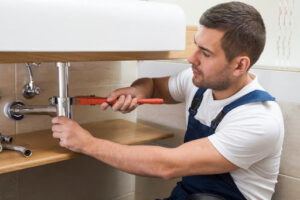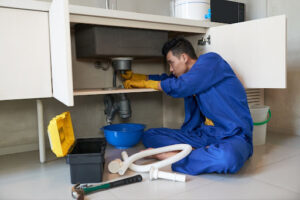There are many reasons why plumbing is important. The primary one is that a properly working system is essential for the delivery of water in the home. Poorly functioning pipes can cause flooding, which can result in injuries and even fires.
Moreover, shoddy plumbing can also cause accidents involving electrocution. Proper plumbing is also necessary for hygienic reasons. There are many people without running water in their homes, which is why it is important to maintain proper plumbing in your home.
Water quality
If you want to maintain the plumbing in your home and prevent deterioration of the pipes, you need to know how to maintain the water quality. Water quality is affected by the number of minerals and other materials that are present in it.
Water’s pH level is a measure of the acidity or alkalinity of a liquid. The ideal pH level is 7. However, when water absorbs other substances it varies from this neutral level, and this can have an effect on plumbing lines.
Acidic water can cause the pipes to corrode faster, while too alkaline water can create strange tastes.
Safety
When working on a property, plumbers should consider the safety of their work and the environment around them. They should wear protective gear such as goggles, gloves, and a face mask.
This gear protects them from the various chemicals and germs they may come into contact with. It also prevents their eyes from getting contaminated by flying objects. Using improper safety equipment can also lead to health hazards, such as catching an electric shock.

Efficiency
In today’s climate, reducing the water use of plumbing products is increasingly popular as a way to save money. And improved technologies have created new opportunities for improvement.
Plumbing products are not operating in a vacuum, so reducing their water consumption will reduce the energy required to pump and heat water. Hence, it is critical for plumbing professionals to consider water efficiency when planning a new building or renovating an old one.
Hygiene
In the world today, hygiene and sanitation are vital to public health. The World Health Organization has called for good water and sanitation practices, including waste management, in order to combat the spread of viruses, such as the COVID-19 virus.
Good sanitation practices and hand washing are the most important ways to combat the spread of this virus, as well as to keep everyone in your home healthy. A plumber is responsible for managing the risks of plumbing installations while making sure that the public isn’t exposed to harmful viruses.
Cost
There are many factors that affect the cost of plumbing. For example, the size of the home will play a significant role in the cost. A large home requires more plumbing materials and labor hours than a small one.
In addition, homes with multiple stories will require more plumbing materials and labor. And if the plumbing project isn’t straightforward, the client will have to pay for the non-standard supplies. Plumbing projects may also require specialized labor.

Nearly everyone has had the experience of a plumbing problem. A leaky faucet, a clogged sink, or a toilet that won’t flush are all nuisances that can disrupt our daily lives.
While these issues may seem minor, they can actually be indicative of more serious problems within the plumbing system. As such, it is important to ensure that our plumbing is functioning properly which is why if you suspect a more serious plumbing is the underlying cause, you should contact a plumber like The Super Plumber.
There are several reasons why plumbing is so important. First, plumbing provides clean water for drinking and cooking. Without clean water, we would quickly become ill. Second, plumbing removes waste from our homes. This is not only essential for sanitation purposes, but it also helps to prevent the spread of disease.
Third, plumbing helps to regulate temperature and humidity levels in our homes. By circulating hot and cold water through our pipes, we can control the temperature of our rooms and prevent excess moisture from building up. Finally, plumbing is essential for fire safety. Fire sprinklers rely on a steady supply of water pressure to function properly, and many homes have water-based fire suppression systems that use pipes to distribute water throughout the house.

